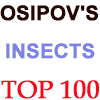Almeidella almeidai
|
|
Updated as per Lemaire's Ceratocampinae, November 6, 2005, corrections from Carlos Mielke, April 3, 2007
|
Almeidella almeidai
ahl-mee-ih-DEL-luhMAHL-mee-ih-duh-eye
Oiticica, 1946

Almeidella almeidai male, Brazil,
courtesy of Carlos Mielke.
This site has been created by
Bill Oehlke at oehlkew@islandtelecom.com
Comments, suggestions and/or additional information are welcomed by Bill.
TAXONOMY:
Superfamily: Bombycoidea, Latreille, 1802
Family: Saturniidae, Boisduval, [1837] 1834
Subfamily: Ceratocampinae Harris, 1841
was Citheroniinae Neumoegen & Dyar, 1894
Genus: Almeidella, Oiticica, 1946
Speces: almeidai, Oiticica, 1946 |
MIDI MUSIC
"WhatAWonderfulWorld"
copyright C. Odenkirk
MIDI CITY
ON.OFF
<bgsound src="world.mid" LOOP=FOREVER>
|
DISTRIBUTION:
Almeidella almeidai (wingspan: males: 70-78mm; females: 86mm) flies in southeastern
Brazil: Rio de Janeiro, Sao Paulo, Santa Catarina.
FLIGHT TIMES AND PREFERRED FOOD PLANTS:
Almeidella almeidai flies in December.
Larval hosts are unknown.
ECLOSION, SCENTING AND MATING:
Adult Almeidella almeidai moths emerge from subterranean pupae, and males are slightly smaller than females.

Almeidella almeidai female, Itatiaia, Rio de Janeiro, Brazil, courtesy of Carlos Mielke.
EGGS, LARVAE AND PUPAE:
Night-flying females lay translucent eggs on host plant leaves. The developing larvae can be seen through the egg shells.
Larvae pupate underground in small chambers.
Care of larvae and pupae should be as for any Neotropical species.
The genus and species names are honourific for R. Ferreira dAlmeida.
It is hoped that this alphabetical listing followed by the common name of the foodplant will prove useful. The list is not exhaustive. Experimenting with
closely related foodplants is worthwhile.
Return to Main Index
Return to Ameidella Index
Use your browser "Back" button to return to the previous page.
This page is designed and maintained by Bill Oehlke as
part of the World's Largest Saturniidae Site.
Use your browser "Back" button to return to the previous page.

| 
Support this website and visit other insect sites by
clicking flashing butterfly links to left or right.
|

|



